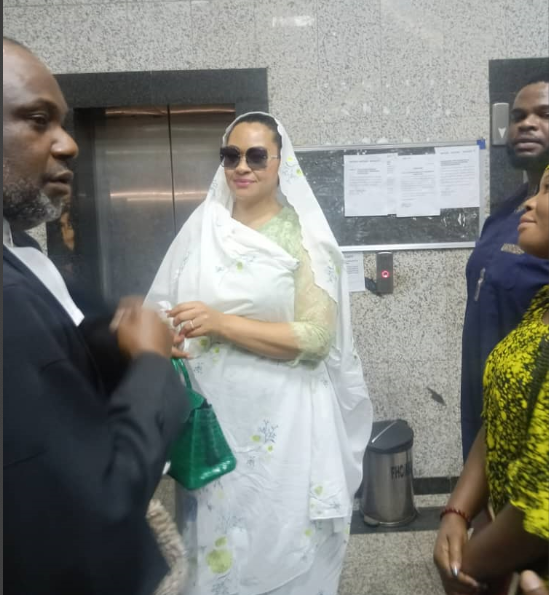Natasha Akpoti-Uduaghan, the suspended senator representing Kogi Central, finds herself embroiled in a legal battle against the Nigerian Senate. Her suspension, stemming from allegations of misconduct, has been challenged in the Federal High Court in Abuja, where Justice Binta Nyako presides. Akpoti-Uduaghan contends that the suspension, orchestrated under Senate President Godswill Akpabio, is unjust and driven by prejudice. This legal confrontation underscores the complexities of power dynamics within Nigeria’s political landscape, raising questions about due process, freedom of expression, and the delicate balance between legislative authority and individual rights. The court’s ultimate decision will have significant implications, not only for Akpoti-Uduaghan’s political career but also for the broader principles of fairness and accountability within the Nigerian Senate.
The core of Akpoti-Uduaghan’s argument rests on the assertion that her suspension was not carried out in accordance with proper procedures and was tainted by bias. Her legal team, led by Jibrin Okutekpa, has meticulously presented evidence to support this claim. They argue that the Senate’s actions were motivated by ulterior motives, rather than a genuine concern for upholding ethical conduct. The defendants, including the National Assembly, the Senate, Senate President Akpabio, and Senator Neda Imasuem, chair of the Senate Committee on Ethics, Privileges, and Code of Conduct, are expected to mount a robust defense. The legal proceedings will dissect the events leading up to the suspension, scrutinize the evidence presented by both sides, and ultimately determine whether the Senate acted within its constitutional authority.
The case, initially assigned to Justice Obiorah Egwuatu, was later transferred to Justice Binta Nyako, adding another layer of complexity to the proceedings. This transition necessitated a re-familiarization with the case details and potentially impacted the timeline for reaching a final judgment. As the case progressed, both parties diligently compiled and submitted their respective documents to the court, outlining their legal arguments and supporting evidence. These documents form the foundation of the legal battle and will be meticulously examined by Justice Nyako before rendering a verdict. The judge’s meticulous review of the evidence will play a crucial role in shaping the outcome of the case.
However, the legal proceedings took an unexpected turn when Akpoti-Uduaghan was accused of contempt of court. The Senate’s legal representatives, Paul Daudu and Ekwo Ejembi, alleged that she violated a court order by publishing a satirical apology to Senate President Akpabio on her Facebook page and in various newspapers. This action, they argued, demonstrated disrespect for the court’s authority and warranted further action. Akpoti-Uduaghan’s legal team countered this accusation, arguing that the alleged statement had no direct connection to their client and that the action lacked the necessary nexus to establish contempt. This back-and-forth over the alleged contemptuous action further complicated the already intricate legal landscape, threatening to overshadow the central issue of the suspension itself.
Amidst these accusations and counter-accusations, Akpoti-Uduaghan’s lawyer, Michael Numan, reminded the court of a prior motion filed by their side, accusing the defendants of also being in contempt of court. This revelation suggested a pattern of reciprocal accusations, further highlighting the contentious nature of the legal battle. The court will now need to carefully consider all allegations of contempt, weigh the evidence presented by both sides, and determine the appropriate course of action. The determination of contempt could significantly influence the overall outcome of the case, adding an unforeseen dimension to the proceedings.
As the court prepares to deliver its final judgment on June 27, the stakes remain high for all parties involved. The decision will not only determine Akpoti-Uduaghan’s immediate political future but also set a precedent for future cases involving the suspension of senators. The judgment will underscore the importance of adhering to due process and the rule of law within the Nigerian Senate, sending a clear message about the boundaries of legislative authority. Moreover, the outcome of the case will inevitably have broader ramifications, potentially influencing the dynamics of power within the Senate and shaping the relationship between the legislative and judicial branches of government. The nation will be watching closely as Justice Nyako’s decision unfolds, recognizing its potential to reshape the landscape of Nigerian politics.


